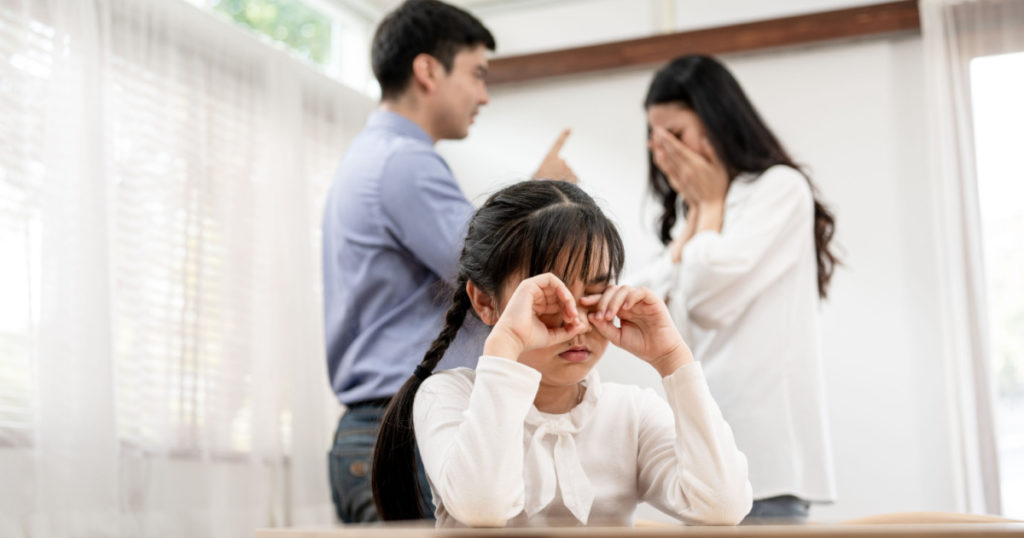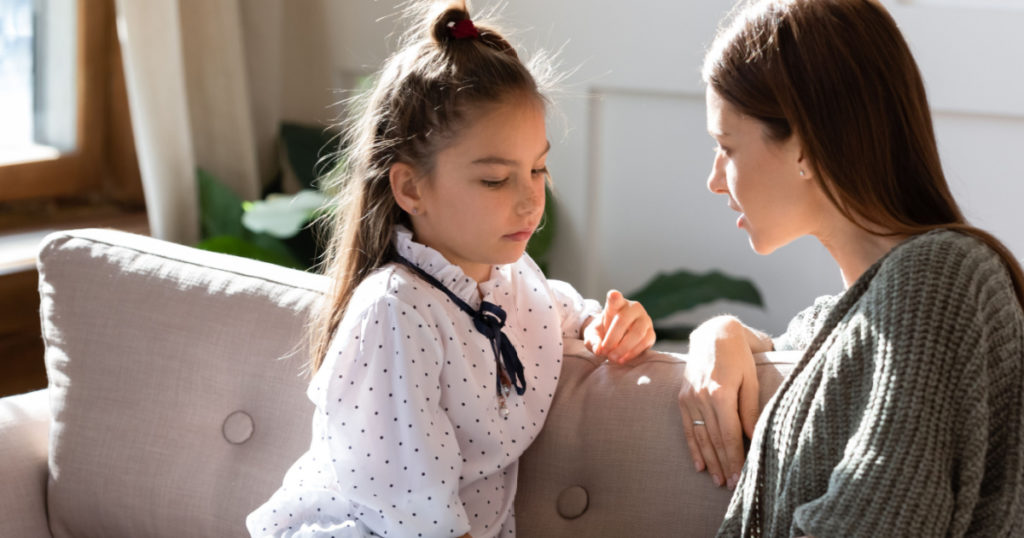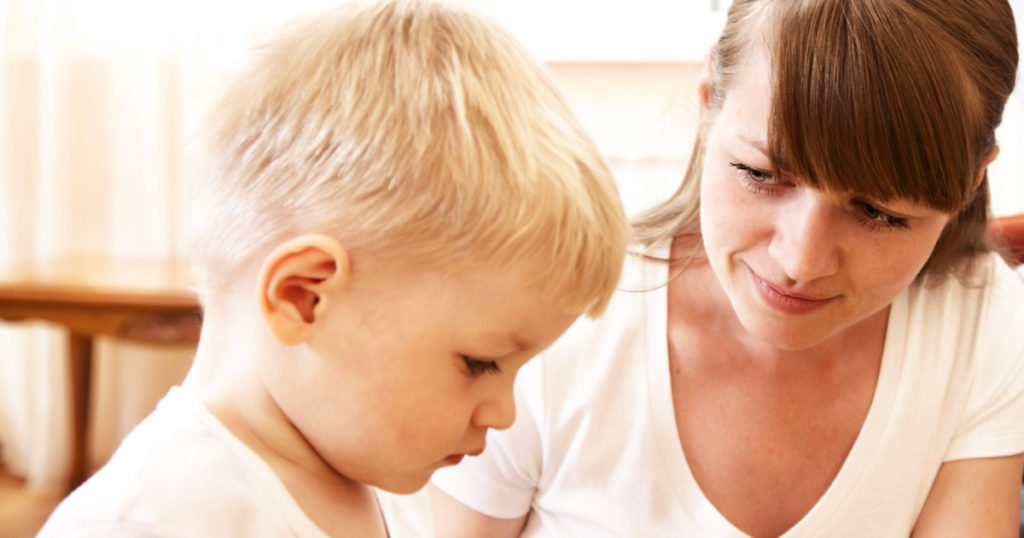Being a parent is one of the most rewarding yet taxing things we experience. However, after a perpetual cycle of toxicity has taken place generation after generation, you will need to break the cycle and recover. Many have chosen to heal from their childhood trauma before having children. No one is perfect, and sometimes our actions hurt others without us realizing it. Here are ten traits that might be worth considering if you’re worried about being a toxic parent.
1. Fighting in front of Others

A sign that you or your spouse, if not both, maybe a toxic parent is when you often argue in front of your children and other family members. It’s normal to have differing opinions and to talk about them openly with eachother. However, the exchanges should be private, maintaining a respectful environment. And in the form of a conversation rather than an argument. On the other hand, if things get heated, it’s best to take a cooling-off period and revisit the topic when both parties have had time to reevaluate.
Read More: If a Friend Uses These Toxic Phrases, It Might Be Time for a New Friend
2. A Toxic Parent is Overly Critical

Most parents want to help their children succeed. However, a sign of a toxic parent also includes how much criticism or praise is given. While children need to be realistic about their strengths and weaknesses, they also need encouragement and support from their parents. Children will face endless reality checks from future educators and employers and everyday encounters with others. Rather than pointing out the flaws in everything they do, try highlighting what they are good at—perhaps encouraging them to continue to work on the skills they wish to improve.
3. Discouraging Goals or Hobbies

A toxic parent tends to discourage their children from pursuing goals and passions or trying something new. This well-intended kind of behavior generally stems from a fear of failure. But more often than not, the pain of letting ourselves and others down is much worse than the actual failure. Therefore, a parent who reminds their child they’re still proud or understands they might feel sad or disappointed, allowing children to feel their feelings, is on the path to avoiding being a toxic parent.
4. A Toxic Parent Prevents Emotions

As previously mentioned, it’s important to allow children the space to feel sad or disappointed when they haven’t accomplished a task or goal, after working so hard to achieve it. Furthermore, this applies to all feelings. Children need a safe space to share their thoughts, concerns, needs, and wants. After all, they’re still learning about the world around them, and processing so much in a day can be taxing, even for adults.
5. Toxic Jokes

It’s not unusual for family members to give one another a “hard time,” but it’s important to understand that there are lines that can become overstepped. When this happens, it can be detrimental to children and their confidence, Both in the world and in themselves. Therefore, one who is hoping to avoid being a toxic parent should also avoid making jokes that are hurtful or degrading. In other words, think about how you’d feel if you were on the receiving end of the joke. If it seemingly upsets, hurts, or causes you any emotional damage, it will likely feel the same for children.
Read More: 20 times women took down toxic men in truly majestic fashion
6. A Toxic Parent doesn’t have a Clue

In the same way that a hurtful joke can cause long-term damage, so too can a toxic parent who cannot recognize the way their actions might affect their child. As previously mentioned, children are learning about the world and themselves. As a result, they’re bound to make mistakes along the way. Undesirable behaviors should be addressed sooner rather than later, but it’s important to note the difference between making a mistake and something that has become a habit. Instead, a toxic parent will berate a child, sometimes endlessly, rather than take the time to be understanding and help their child find better ways to navigate their feelings, struggles, or future situations that may be similar.
7. Role Reversal

Another sign that you may be a toxic parent is reflected in what you expect from your child. Some parents expect their children to take on adult responsibilities such as acting therapists, personal assistants, or providers. Sadly, these expectations only add to the stress of growing up and experiencing everything from learning that you have feelings and opinions but very little freedom to hormone changes.
8. Blaming

Arguably, placing blame on a child can fall into the category of role reversal. However, it’s much more. Placing blame on a child not only requires them to take on adult tasks, but it can also cause long-term and negative mental health impacts. They’ll eventually start to question their worth, if not their sanity. It can cause a child to feel they’re in the wrong or will never be good enough. They may feel unworthy of love from you or others and unworthy of happiness or success.
9. No Boundaries

Another behavior that may reflect a toxic parent is one in which boundaries become skewed. Whether a parent allows the child to establish boundaries then ignores them or refuses to let boundaries be set in the first place. Interestingly, role reversal and placing blame can become evident in these instances as well. For example, a parent may become frustrated by a child who enters without knocking but may also be guilty of the same behavior. Thereby expecting their children to respect their boundaries without offering the same courtesy. Or a parent may choose to engage in a conversation with their child that crosses a line or isn’t appropriate, such as venting about the other parent or money troubles.
10. A Toxic Parent is Always Negative

It’s never a bad idea to be prepared for the worst-case scenario. Nor is it a bad idea to be realistic about what might go wrong, including facing challenges rather than denying their existence. Yet some people spend all of their time questioning the intentions of others. They worry about possible failed outcomes or the dangers of every situation. Rather than live in the moment, recognize that things are as likely to go well as they are to fall apart, and choose to see that there is some good to be found everywhere.
Healing is Key

Life is incredibly challenging for everyone, particularly concerning parent and child relationships. In most cases, parents love their children more than anything and oppositely. Yet parents and children rarely see eye to eye, in many cases, because somewhere inside most parents lies a hurt child who had a toxic parent, guardian, or other adult in their lives. It’s essential to both heal from these things and put yourself in the shoes of others, in this case, children. This will help to give a new perspective on how you treat others, as well as how you view yourself. In turn, you’ll create a more loving and understanding life, setting a great example for future generations. Showing them how peaceful and rich life can become when it’s lived in forgiveness, understanding, and encouragement.
Read More: 5 Signs You Grew Up in a Toxic Family and Might Need Some Time Apart From Them
Sources
- “6 Signs You’re A Toxic Parent But Don’t Realize It.” Higher Perspectives.
- “Toxic Mother: Definition, Signs, and How to Cope.” Very Well Mind. Brittany Loggins. April 12, 2023.

